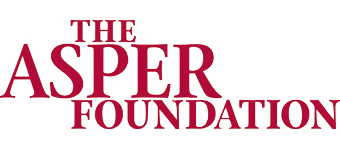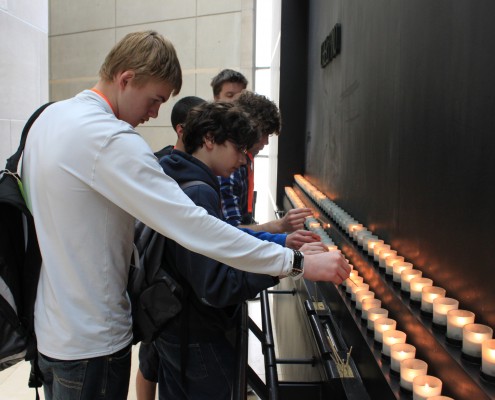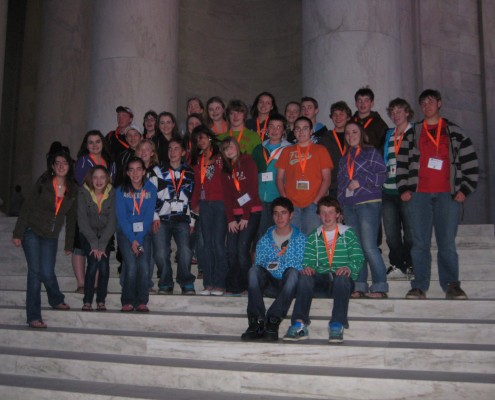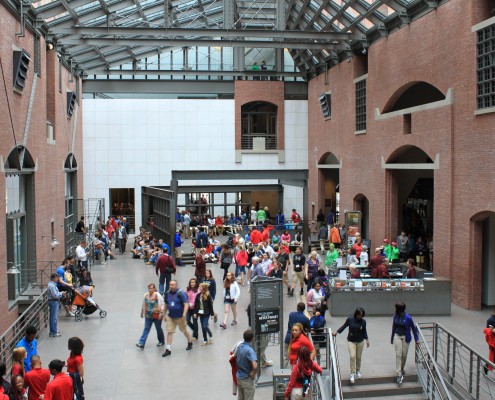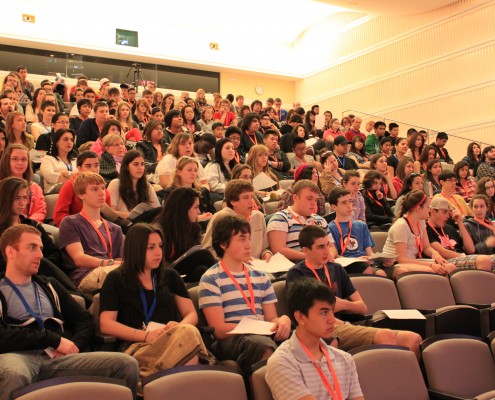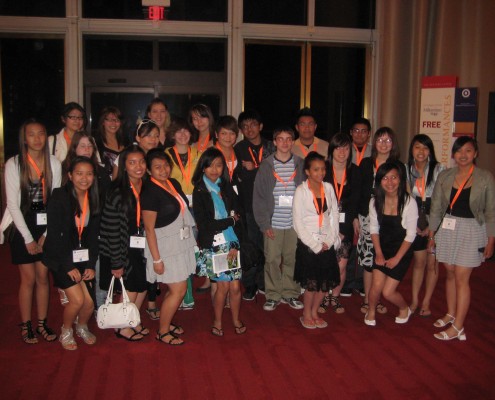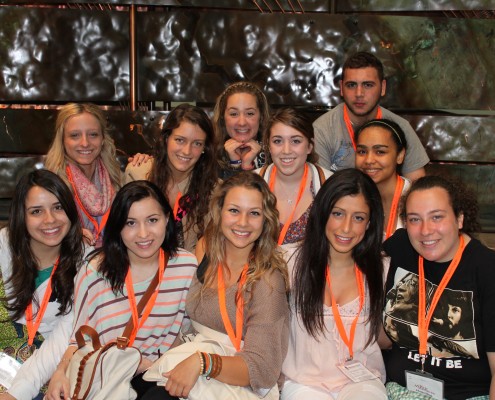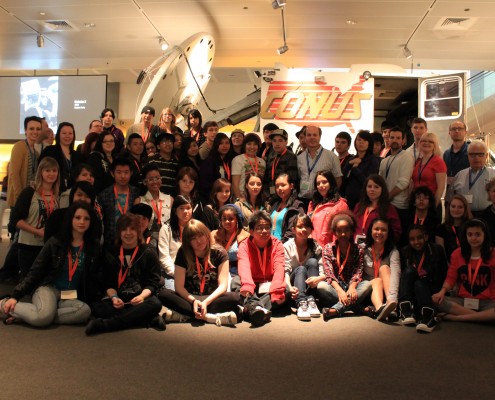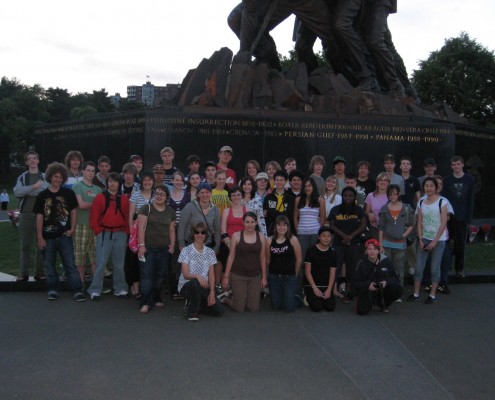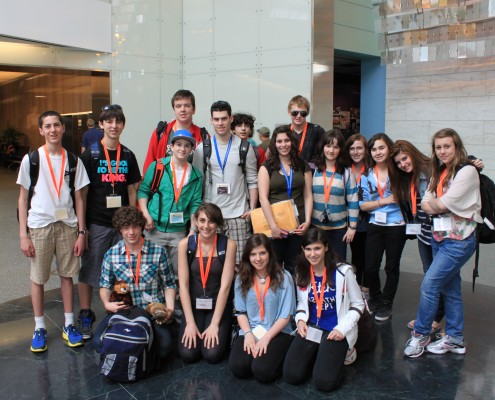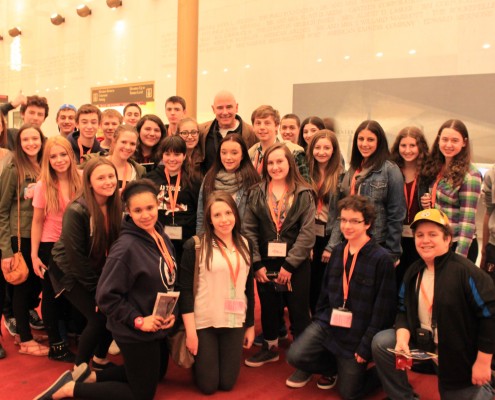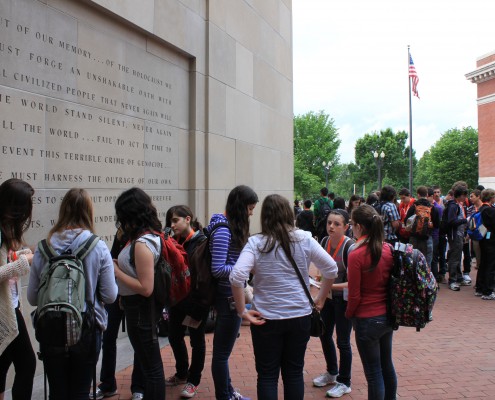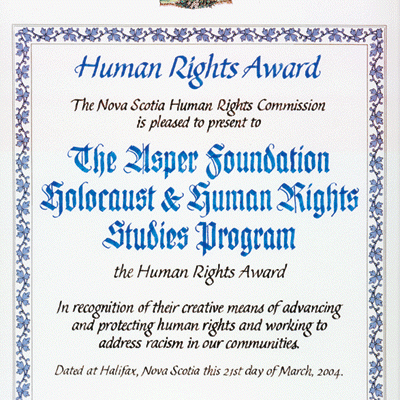The Asper Foundation Human Rights and Holocaust Studies Program
One of the major initiatives of The Asper Foundation is its Human Rights and Holocaust Studies Program. Through a specially designed education program, the program objectives are to educate grades seven to nine Canadian students about the Holocaust and:
- inspire them to take personal responsibility to combat antisemitism in particular and racism in general;
- show them the consequences of complacency and indifference;
- sensitize them to the consequences of racism; and
- promote respect for others
The Asper Foundation contributes and raises, with partners, over a million dollars annually to the program. The Winnipeg Foundation is one such organization having annually supported almost 50 students on the program from 2001-2005. Since the program’s inception in 1997 to 2021, over 14,000 students and chaperones in 205 cities spanning twelve provinces and territories across Canada have participated in this initiative. Over 1,000 of these program students were First Nations, Métis and Inuit.
Through this program and others, The Asper Foundation is working towards educating the youth of Canada to preserve the memory of those of who lost their lives through the denial of human rights including the victims who suffered under the Nazi regime. The six million Jews, three million Polish Christians and two million others – physically and mentally disabled individuals, Jehovah’s Witnesses, homosexuals, Roma and Sinti, Soviet POWs and dissidents – who were murdered must never be forgotten, lest history repeat itself.
The program, which started in Winnipeg, Canada, with Jewish students has been expanded to become a national initiative that is inclusive of students from many backgrounds. It is the recipient of the 2004 Human Rights Award from the Nova Scotia Human Rights Commission “in recognition of (its) creative means of advancing and protecting human rights and working to address racism in our communities” and The Asper Foundation received the 2008 New Brunswick Pioneer of Human Rights Award from the New Brunswick Human Rights Commission which recognizes “human rights pioneers for their historic contributions to the protection and promotion of human rights in Canada.”
In 2000, for the first time, this program became a national initiative. All students are required to take an 11-hour education program, or its equivalent, on human rights and the Holocaust with an added emphasis on Canadian history and the current situation in the world today. The curriculum for the educational component of the program was developed specifically by Holocaust and human rights educators for The Asper Foundation. Until 2015, after the educational component was completed, students participated in a trip to Washington, DC, where they spent several days at the United States Holocaust Memorial Museum and other important monuments relating to freedom. In 2016, The Asper Foundation Human Rights and Holocaust Studies Program shifted its trips from Washington, DC, to Winnipeg, MB and the Canadian Museum for Human Rights. The students are also required to volunteer for 5 hours in their communities on qualified charitable projects of their choosing. The objective of this aspect of the program is to underscore each person’s responsibility as a citizen and to impress upon the students the difference one person can make. This has resulted in over 154,000 hours of community service being carried out across Canada since the program was established. The program is open to schools and organizations across Canada outside of a 2-hour drive radius from Winnipeg, MB.
The last component of the program is a voluntary evening graduation ceremony held to present a Memorandum for Personal Responsibility, written by Dr. Israel Asper, to each student. The Memorandum aims to provide each student with a sense of the importance that they participated in the program and to remind them that they have a personal responsibility for the world community. The ceremony is a wonderful way to provide the students with closure to the formal part of the program as well as the sense that they are now beginning a new life of greater understanding and respect.
The value of this program is reflected in the support it receives across the country by private and public foundations, organizations and individuals who understand its importance. Another measure of the program’s value is the fact that in Washington, DC, for several years, Congressman Tom Lantos (1928-2008), the only Holocaust survivor elected to the US Congress, met with and spoke to program participants about the importance of understanding and protecting human rights.
Congressman Lantos described the program as “outstanding” and remarked “It is always wonderful to see the youth take a real interest in foreign affairs, the Holocaust, human rights and other major political issues. I congratulate and commend you on this outstanding program. (It) helps to bring up a new generation of people committed to creating a better world.”
The program has inspired tremendous outcomes from its students through the establishment of anti-bullying programs and human rights clubs in schools, raising money for homelessness and other charitable causes and working to end human rights abuses in Africa and other parts of the world. The program has also influenced students’ career choices in areas such as human rights, education, medicine, social work and law.
In April 2003, Friends of the Canadian Museum for Human Rights in joint partnership with the Government of Canada, Province of Manitoba, City of Winnipeg and the Forks North Portage Partnership announced the intent to establish the Canadian Museum for Human Rights in Winnipeg. The concept for the museum was inspired and motivated by the extraordinary impact of The Asper Foundation Human Rights and Holocaust Studies Program. The Museum was later established as a national Museum in March, 2008 with construction beginning in spring 2009 and opened September 20, 2014. The Canadian Museum for Human Rights explores the subject of human rights and its purpose is to promote understanding, respect and to encourage reflection, dialogue and action.
The Canadian Museum for Human Rights is the first national Museum created in Canada since 1967 and the first national Museum to be located outside the National Capital Region. It is envisioned that The Asper Foundation Human Rights and Holocaust Studies Program will evolve and become a national student program in the Museum with the resources to sponsor thousands of students and their chaperones from across Canada to visit the Museum each year.
For more information and to apply to this program, please visit the program website at http://humanrights.asperfoundation.com/.
